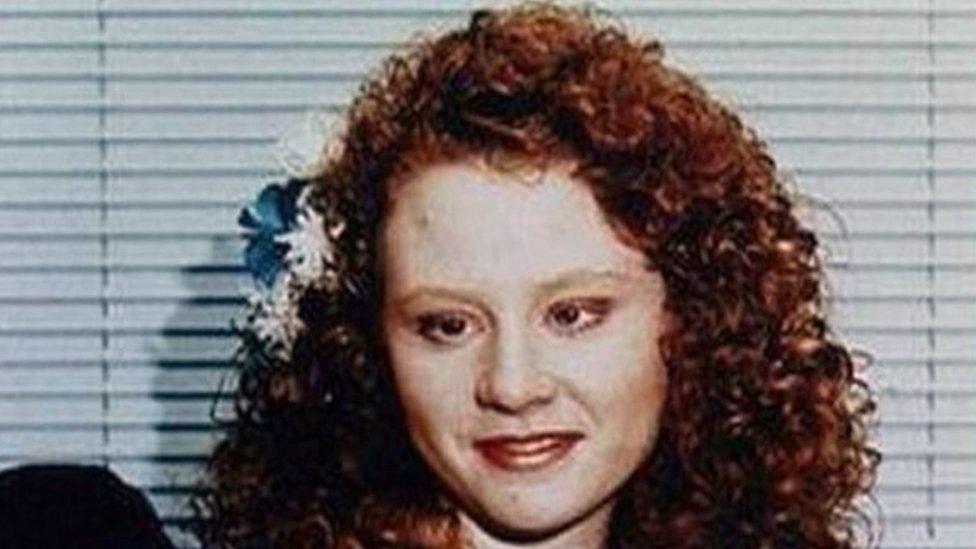Francis Auld retrial bid rejected over Amanda Duffy death in 1992
- Published

The body of Amanda Duffy was found on waste ground in Hamilton in 1992
Prosecutors have failed in a legal bid to bring a new case against a man who was cleared of murdering a 19-year-old student more than 20 years ago.
The Crown Office wanted to use double jeopardy legislation to secure a retrial of Francis Auld over the death of Amanda Duffy in Hamilton.
Her body was found on waste ground in the South Lanarkshire town in May 1992.
Judges at the Court of Criminal Appeal in Edinburgh rejected an attempt by prosecutors to submit new evidence.
Proceedings in the case were heard by Lord Carloway, Scotland's most senior judge, Lord Bracadale and Lady Dorrian.
The Crown wanted to rely on a conversation between prison officer Alexander McCartney and Mr Auld which took place sometime in June 1992.
'Heavy charge'
Mr McCartney spoke to the police in 2012 after investigators learned that he had information which could help their case.
Mr McCartney claimed that Mr Auld - who was on remand at the time at HMP Longriggend in Lanarkshire in June 1992 - made a remark which could be construed as being a confession.
In a legal statement, Mr McCartney told investigators that he started his conversation with Mr Auld by saying: 'It's quite a heavy charge you're in for."
Mr Auld allegedly replied: "We were just fooling about and things got out of hand."
Mr McCartney told the police that he reported this to his superiors. He was told by his supervising officer: "It's just hearsay Alex. There's nothing you can do about it."
The judges ruled that the new evidence was not admissible and could not be used against Mr Auld and the case could not go ahead.
The judges said that the alleged admission of guilt was not made in accordance to laws regarding confessions.
Evidence destroyed
The judges also ruled that because the DNA evidence from the original trial had now been destroyed, the Crown could not bring Mr Auld to court for a second time.
In the judgement, Lady Dorrian wrote: "The case is one which caused great distress to the family of the deceased and shock within the community.
"The court must look at the evidence upon which the application is based and the evidence led at the trial.
"It cannot be swayed by considerations of other, possibly strengthening evidence which may be in the hands of the Crown but which has not formed the basis of an application."
Prosecutors had attempted to use the Double Jeopardy (Scotland) Act 2011 against Mr Auld.
The act allows the Crown to bring a person previously acquitted of murder to court for a second time.
The legislation sets out conditions where an accused can be retried for a crime in which they were previously acquitted.
Any retrial requires high court judges to give prosecutors permission to proceed against the accused.